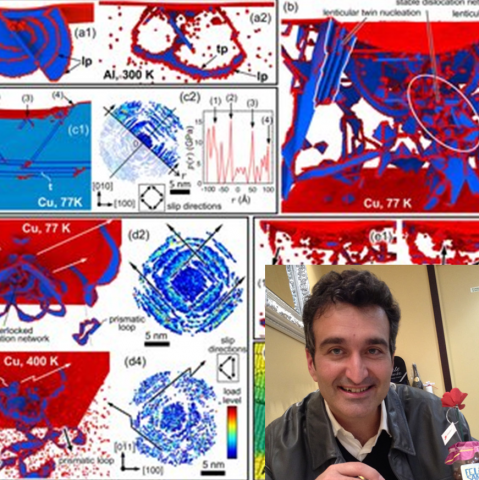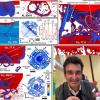NOMATEN HYBRID-SEMINAR September 13: Understanding spherical indentation experiments across the material scales
NOMATEN HYBRID-SEMINAR
online: https://www.gotomeet.me/NCBJmeetings/nomaten-seminar
In-person: Proton seminar room, PNT, NCBJ
Tuesday, SEPTEMBER 13th 2022 13:00 (1.00PM CET)
Understanding spherical indentation experiments across the material scales
Prof. Jorge Alcala
Universitat Politècnica de Catalunya (BarcelonaTech) Department of Materials Science and Engineering Barcelona, Spain
Abstract:
This presentation concerns the investigation of mechanical responses and mechanical property extractions from spherical indentation tests performed in polycrystalline metals and single crystals with imprints gradually ranging from millimeter to sub-nanometer sizes. Comprehensive continuum plasticity computational simulations are performed to investigate the applicability and improve the accuracy of classic continuum contact mechanics analyses. Specific features under discussion are the concept of the characteristic or representative strain and the transition from elasto-plastic to fully plastic spherical indentations with increasing tip penetration. The opportunities and challenges that this transition represents in the context of mechanical property extractions are further discussed. Continuum crystal plasticity is employed to highlight the main features from the above isotropic analyses that still hold when it comes to the interpretation of spherical indentations performed in anisotropic single crystalline material units. Finally, molecular dynamics simulations are carried-out with the purpose of examining the distinctive mechanisms by which defect nucleation occurs in BCC metals as compared to in FCC metals, as well as the onset of plastic zones and their correlation with the defect mechanisms that produce permanent nanoimprints. This allows us to unravel the origins of the so-called indentation size effects that naturally emerge in nanoindentation testing..
Bio:
Professor Jorge Alcalá has been at the Universitat Politécnica de Catalunya (BarcelonaTech) since 2002, where he earned his PhD in 1995. His main research interests lie along the lines of micromechanics of materials, crystalline defects, and plasticity. His most notable scientific contributions have led to advances in the understanding of indentation experiments through continuum isotropic plasticity, crystal plasticity, and molecular dynamics computational simulations. Additional research interests concern intermittent plasticity and dislocation avalanches, flexoelectricity and piezoelectricity. He has published more than 40 scientific papers in top peer-reviewed journals that have been cited over 3000 times, and holds 4 International and US Patents. He has held postdoctoral appointments at MIT from 1995 to 1997 and has been invited professor at the Technion in Israel from 2006 to 2007. His main technological interests are along the lines of the optimization of mechanical properties in steel castings and related phase transformations.







